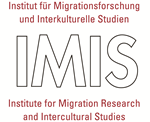At present, there is little social scientific data available on the situation of women living in German refugee camps. Knowing and understanding more about women’s experiences and struggles within the asylum system is of vital importance in order to make useful political claims and provide effective support where it is needed and wanted. This aim to better understand women’s current situations in refugee camps in Berlin brought together the feminist group International Women’s Space (IWS) with a group of BA students and two lecturers from the Institute of Social and Cultural Anthropology at the Freie Universität Berlin. Together, we organized a research seminar, which took place in the winter term of 2015/16. Our research adopted an ethnographic and participatory approach and comprised semi-structured interviews, participant observation, and mappings. Fieldwork took place in five different refugee camps in Berlin which housed between 200 and 1148 residents each. In selecting the camps, we focused on different types of accommodation for refugees, such as centrally versus non-centrally located, as well as emergency versus more established camps. In five teams of three to six students each, we collected data about the women’s social interactions, safety and privacy as well as health and care within the camps. Furthermore, we focused on issues of administration and registration and tried to find out about the demands and needs the women living in the camps had. In total, we talked to more than 40 women in individual and group interviews and with many more (>80) through informal conversations. In summary, our research showed that while women’s perspectives on their living conditions in refugee camps can differ greatly from male refugees, women are rarely given the opportunity to speak about the specific challenges that they face. The five refugee camps in Berlin, where we conducted the research, had very different structures, layouts and support networks; the women had fled from countries like Syria, Afghanistan, Eritrea and Albania and had diverse socio-economic, linguistic and educational backgrounds. The type of accommodation and its general layout had a significant impact on the living conditions of the residents. Furthermore, the women’s experiences were not only shaped by their position as female refugees, but also by other factors such as their citizenship, religion or educational background. Especially the legal status in Germany depends strongly on the country of origin of the asylum-seeker and the label ‘safe’ or ‘not safe’ that the German government attributes to this country. Taken together, all these factors had a significant impact on the legal rights, privileges (or lack thereof) and finally on the living conditions of the individual women. In spite of this heterogeneity, however, we found that many of the women living in refugee camps in Berlin shared similar experiences and needs. They longed for a self-determined life and the uncertainty regarding their situation often became unbearable for them. This was especially because the duration of the stay in emergency camps was prolonged over many months and the makeshift character of these accommodations could no longer serve as a justification for the often precarious living conditions, especially for women who are a particularly vulnerable group in this context. In the book and blog publications of the project, we summarize the most important aspects that need to be addressed for improving the situations of women in accommodation centers in Germany. These comprise: the asylum process; translation and access to information; childcare and the gendered division of tasks; hygiene and health care; as well as self-determination.
On the Situation of Women in Accommodation Centers for Refugees in Berlin: Ethnographic Perspectives
| Projektart | Projekt der Institution |
| Finanzierung | |
| Themen |
|
| Disziplinen |
|
| Projektwebseite | www.weissensee-verlag.de |
| Laufzeit | 10/2015 ‒ 07/2016 |
| Geographischer Fokus |
|
| Institutionen |
|
| Beteiligte Personen |
|
| Kurzbeschreibung |
|







